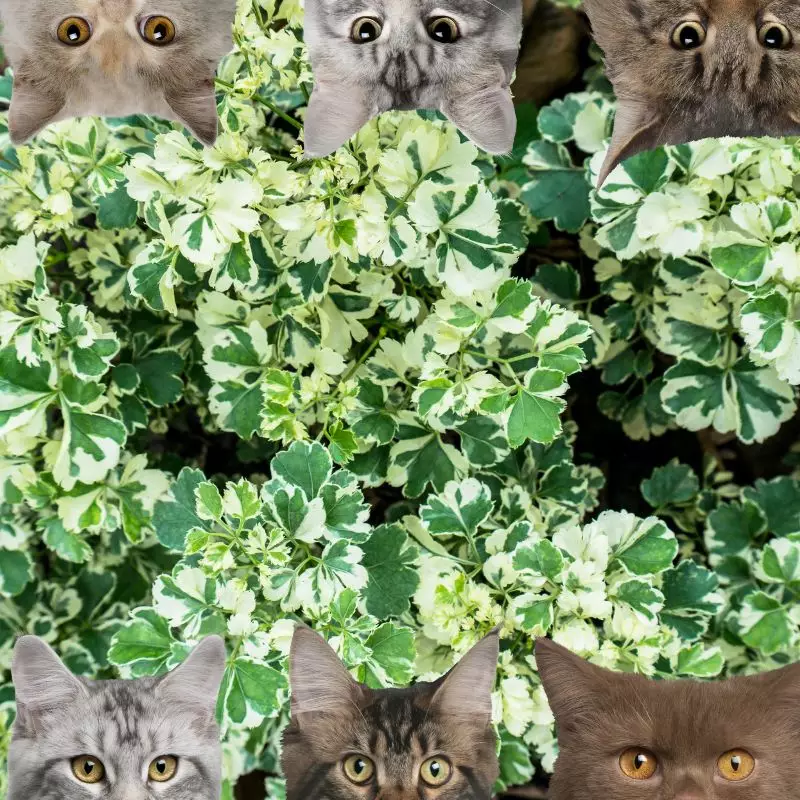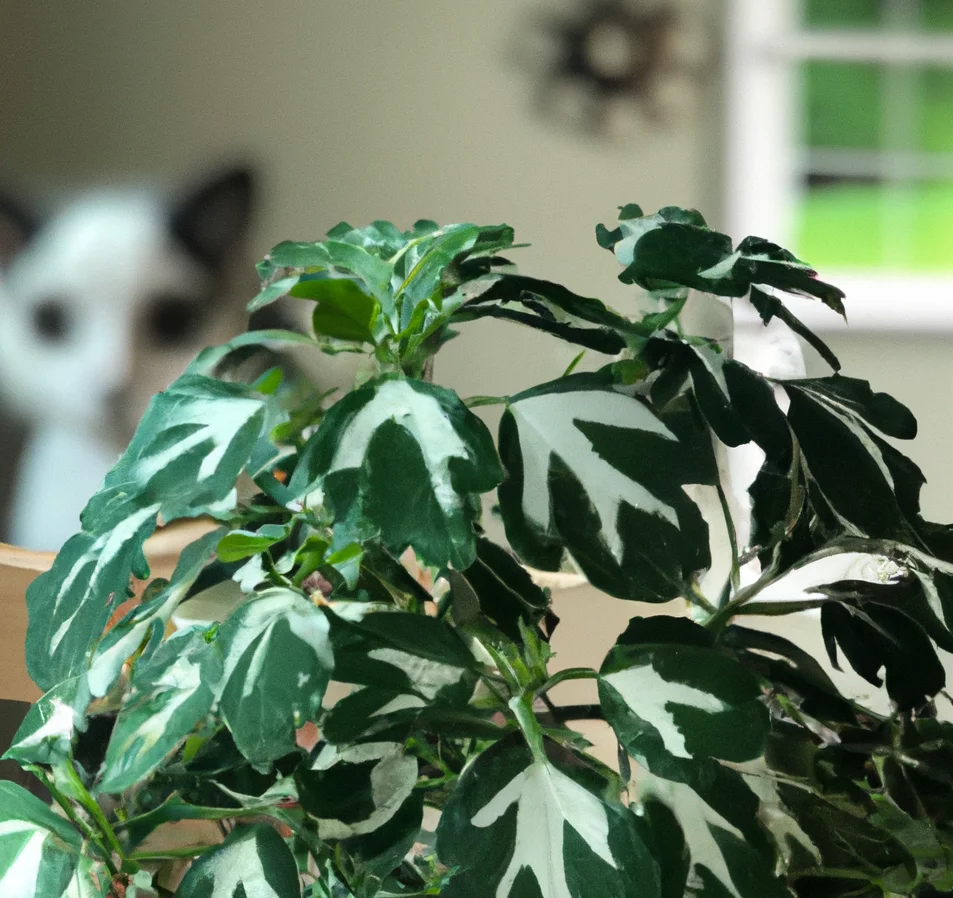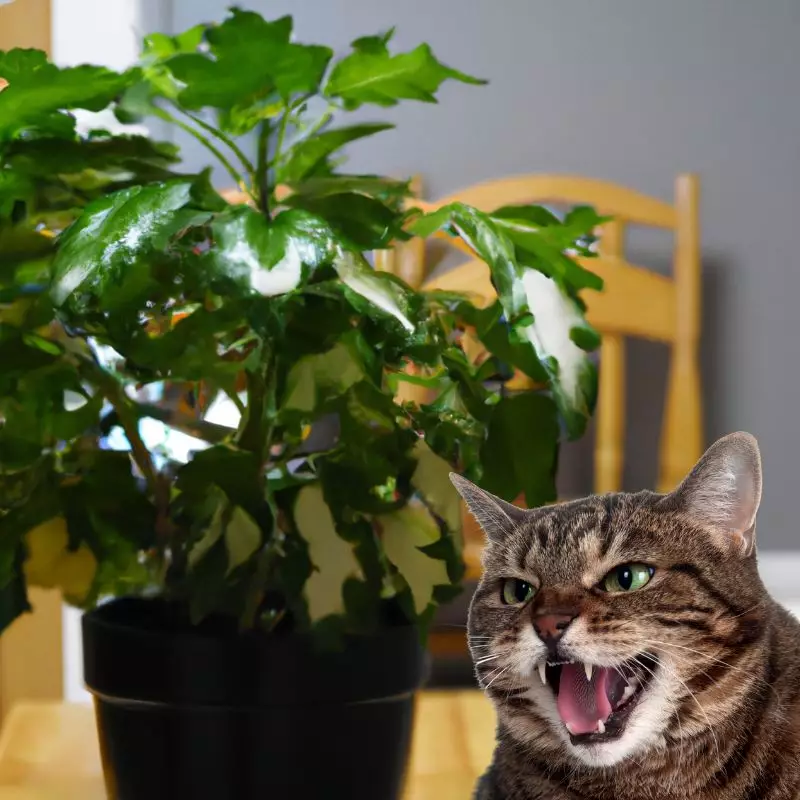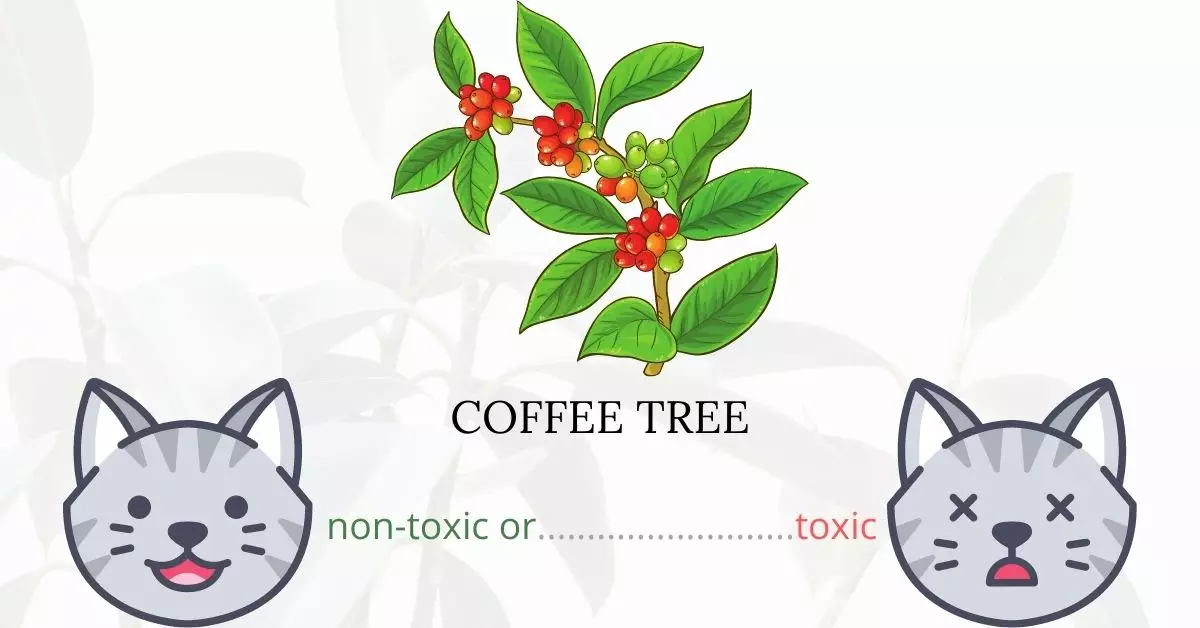Yes, the Coffee Tree, also known as Wild Coffee, Coffee Tree, Geranium-Leaf Aralia, or simply Aralia, is toxic to cats. This evergreen shrub contains saponins, which are compounds that can irritate a cat’s skin or cause inflammation in their mouth and gastrointestinal tract if ingested. Symptoms of Coffee Tree poisoning in cats include skin rashes, vomiting, loss of appetite, lethargy, and an elevated heart rate. While it’s rarely lethal and doesn’t typically result in life-threatening complications, it’s essential to seek veterinary care immediately if you suspect your cat has consumed this plant.
This article was crafted in collaboration with a team of experienced DVMs (doctors of veterinary medicine). With their invaluable input and our thorough research from high-authority websites like ASPCA and PetMD, we strive to offer accurate and up-to-date information concerning the potential risks various plants, including the Coffee Tree, pose to cats.
Clinical Signs of Coffee Tree or Geranium-Leaf Aralia Poisoning in Cats

The Coffee Tree or Geranium-Leaf Aralia contains saponins, which can have varying effects on cats depending on the type and amount of exposure. When cats come in contact with or ingest the plant, the following symptoms may manifest:
- Dermatitis: Physical contact with the Coffee Tree can lead to skin irritation. This is caused by the saponins present in the plant, which can act as irritants when in direct contact with a cat’s skin.
- Vomiting: Ingesting even a small part of the Coffee Tree may lead to vomiting. This is the body’s response to try to expel the harmful saponins consumed.
- Appetite Loss: The gastrointestinal distress caused by the plant’s toxins can lead to a reduced appetite in affected cats. The discomfort and unease caused by the ingested saponins may result in a temporary disinterest in food.
- Depression: Cats may seem more withdrawn or less responsive due to the physical discomfort caused by the poisoning.
- Weakness: The body’s response to the ingested toxins can sap a cat’s strength and energy, leading to an overall sense of weakness.
- Fatigue: As a result of the body fighting off the effects of the toxins, cats may display signs of fatigue or lethargy.
- Elevated Heart Rate: The saponins can impact a cat’s cardiac function. If ingested in significant amounts, it can lead to an increased heart rate as the body tries to combat the foreign substance.
It’s crucial to note that if cats consume only a minor quantity of the Coffee Tree or have a brief physical exposure, they may not exhibit any symptoms. However, with considerable consumption or extended contact, the signs can emerge rapidly post exposure. If you notice any of these signs in your cat after interaction with the Coffee Tree, seek veterinary care immediately.
First Aid and Treatment of Coffee Tree or Geranium-Leaf Aralia Poisoning in Cats

To avoid dehydration and electrolyte imbalances caused by prolonged vomiting and diarrhea, your cat may receive IV fluids. Typically, the vet may induce vomiting and, once the vomiting has subsided, may administer activated charcoal. Depending on your cat’s condition, the veterinarian may conduct gastric lavage as needed. In case of skin irritation, the veterinarian may need to prescribe a corticosteroid to reduce the swelling and inflammation.
Recovery from Coffee Tree or Geranium-Leaf Aralia Poisoning in Cats

The majority of cats who have been poisoned by coffee trees will recover completely. The sooner you bring your cat to the clinic for treatment, the higher his chances of making a full recovery are, just like with other types of poisoning.
Once you are home with your cat, give him or her a lot of fluids to continue clearing his or her stomach. Keep your cat’s environment cozy and warm as he or she is still recuperating.
Prevention of Coffee Tree or Geranium-Leaf Aralia Poisoning in Cats
Avoid growing coffee trees and other plants that may be toxic for your cats. If there are known coffee trees or other hazardous plants growing in your area, limit your cat’s outdoor activities. It is also best to confine them inside a playpen or cat house when you are not at home.
If you love plants but have cats at home, check out these lists:





